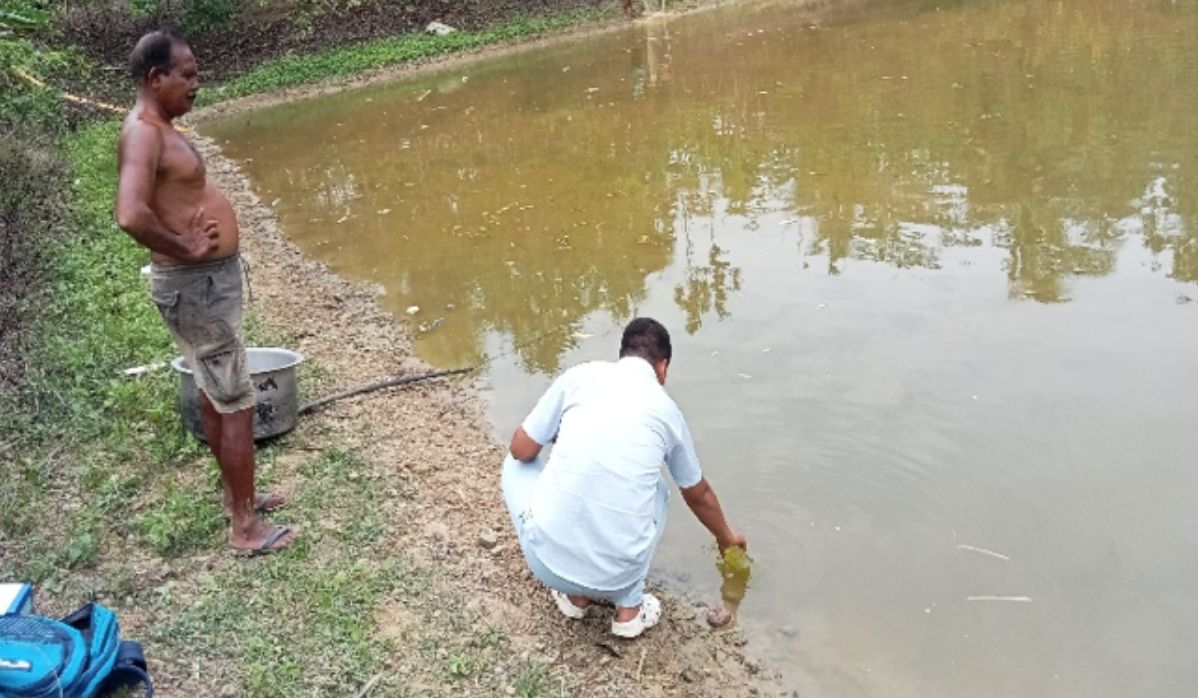Tarun Karthick
Sri Vijaya Puram, 10 April 2025
In the wake of unseasonal and intense rainfall that triggered significant fish mortality across several inland aquaculture ponds in the North and Middle Andaman district, a team from ICAR-Krishi Vigyan Kendra (KVK), Nimbudera, conducted a field-level diagnostic investigation to assess the damage and provide immediate advisory support to affected farmers.
The diagnostic visit was led by Mr. Subam Debroy, Subject Matter Specialist (Aquaculture), accompanied by Dr. V. Damodaran, Senior Scientist and Head of ICAR-KVK, Nimbudera. The team visited impacted fish farms across Rangat and Mayabunder blocks, where they examined ponds showing signs of fish die-off.
Preliminary assessments revealed that the sudden downpour caused abrupt fluctuations in pond water quality—marked by a steep drop in water temperature, decreased dissolved oxygen levels, and unstable pH values. These environmental shifts were identified as the primary cause of mortality among commonly cultured fish species.
During the visit, Mr. Debroy conducted on-site water quality testing and interacted with farmers to evaluate the extent of the losses. He issued a set of immediate remedial advisories, which included reinforcing pond dikes to prevent runoff from adjoining paddy fields and stabilising pond conditions.
Farmers were advised to operate aeration pumps for at least 30 minutes during evening hours to boost oxygen levels and promote water circulation. To control bacterial infections and enhance water quality, the use of potassium permanganate at 200–300 grams per 0.1 hectare of water was recommended, along with salt solution treatments (1 kg of salt per 50 litres of water) as a disinfectant. Application of agricultural lime, based on current pH readings and pond water colour, was also advised to regulate acidity and improve the aquatic environment.
The ICAR-KVK team emphasized the importance of regular monitoring of water quality parameters, especially during extreme or changing weather conditions, and urged farmers to adopt climate-resilient aquaculture practices. (Story Based on PR)

